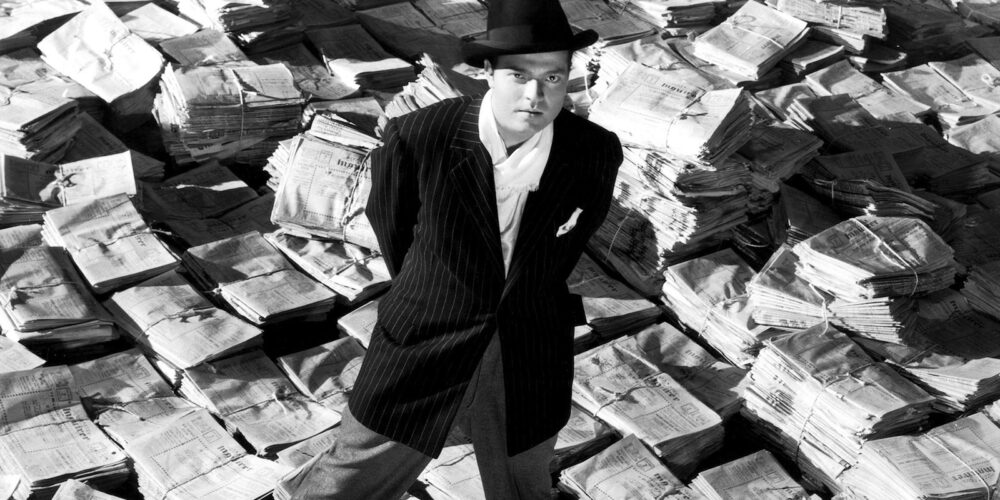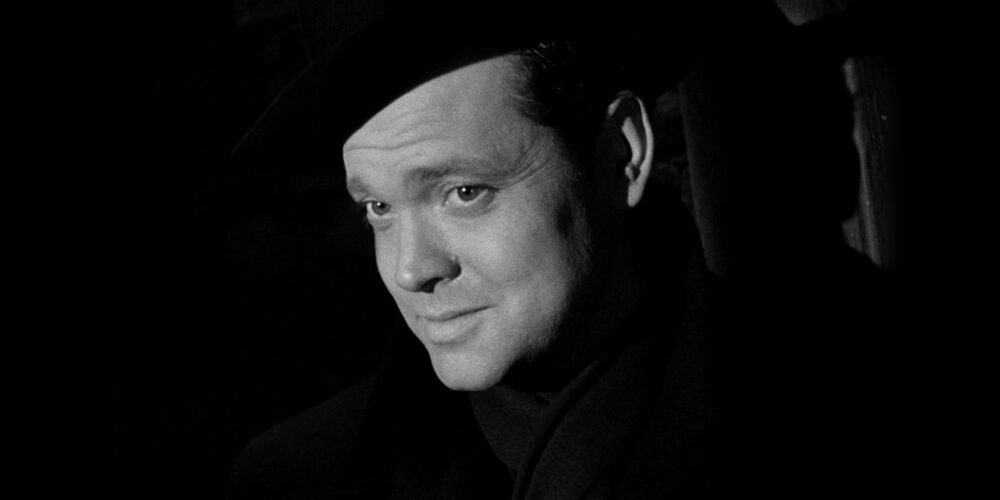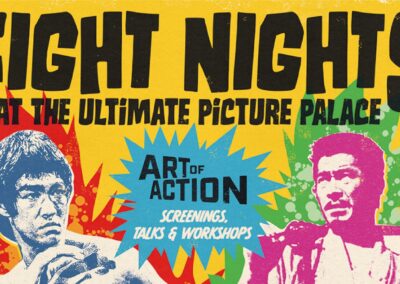1941’s masterful Citizen Kane, unsurprisingly turned out to be a tough act to follow. Orson Welles, a child prodigy and star of theatre and radio was already well known to audiences across the world when he first arrived in Hollywood and was given carte blanche by RKO studios to make whatever he wanted. He was even, against the odds, given final cut – which meant that the studio could not interfere with any aspect of the film’s production.
The resulting film had its admirers but the fact that it seemed to be too closely based on the career of William Randolph Hearst – at the time one of the richest and most powerful men in America (who also happened to own a chain of cinemas – amongst many other things) and upset the great man profoundly (primarily due to the representation of Susan Alexander, who he believed was an insulting stand in for his mistress Marion Davies) meant that it wasn’t the box office smash Welles and RKO had anticipated.

The backlash and fallout from this meant that “boy genius” Welles’ follow up to Kane, an adaptation of Booth Tarkington’s 1918 Pulitzer Prize winning novel The Magnificent Ambersons, was savagely overhauled and reshot by the studio and, thereafter, Welles worked as a director only sporadically (although, yes, both Lady from Shanghai and Touch of Evil are both pretty impressive and his self-funded Shakespeare adaptations have their admirers). His final film as director, 1974’s witty and engaging pseudo-documentary F For Fake is being given a rare screening at the UPP in April and is well-worth a look.
Welles, now an outsider in Hollywood, like everyone else, had bills to pay, and so, between his increasingly erratic out-put as a director, returned to his other gig: acting; often using his fee to fund his own films.
As an actor it would be fair to say he turned in several memorable performances (although his charismatic turn as Charles Foster Kane was also a hard act to follow). In 1943, for example, he was Rochester to Joan Fontaine’s Jane Eyre; he played an overpowering Father Mapple in John Houston’s 1956 version of Moby Dick; in Compulsion he was outstanding as liberal lawyer Jonathan Wilk (loosely based on Clarence Darrow) and, in 1970, he stole the show in both Mike Nichols’ Catch 22 (as General Dreedle) and the epic Waterloo (in which he was Louis XVIII).

However, the role that, for many, outshone all of these was his 1949 turn as the duplicitous Harry Lime in British director Carol Reed’s cynical post-war drama The Third Man, which was scripted by Graham Greene. This was another role, like Kane, which captured Welles’ charm and self-awareness – but also revealed that, underneath, Welles was also capable of revealing deep-seated rot and moral decay. It’s a truly ambiguous performance – Lime is one of cinema’s most engaging villains – every bit as memorable as his brilliantly shot (by Robert Krasker) first appearance from the shadows about a third of the way in; that fabulous “cuckoo clock” speech and the film’s superb zither music soundtrack, which was composed by Anton Karas.
Orson Welles remains one of those great film makers (and actors) with whom all cineastes should be familiar. His films were designed to be seen on the big screen and, arguably, the movies he directed have almost all got better over time (rather like the films of that other master – Stanley Kubrick). F for Fake may well be a low-key farewell but it has everything you could want from a film helmed by the maestro: wit, intelligence; a clever twist in the tale and, above all, it remains a great deal of fun.
Fans of Kane will be pleased to learn that, in addition, Fake includes cameos from three of his Mercury players and Kane co-conspirators – Joseph Cotten, William Alland and Paul Stewart.
The fact that Welles also appears is another bonus – his charisma is undeniable and, man, what a voice.
See F For Fake on Wednesday 3rd April (6.15pm). Click here to book tickets.
Dr Andrew C Webber is a Film teacher and examiner with over 37 years’ experience. He currently contributes to both the Cinema of the 70s and 80s magazines (available on Amazon); cassette gazette fanzine (available from cassette pirate on e-bay) and the Low Noise music podcast available on Spotify and Apple podcasts.


